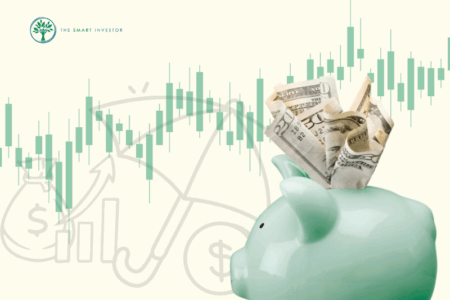Welcome to this week’s edition of top stock market highlights.
Alphabet (NASDAQ: GOOGL)
Google, whose parent company is Alphabet, unveiled an exciting breakthrough in quantum computing that sent its shares northwards.
The popular search engine mentioned in a blog post that its new chip, Willow, took just five minutes to solve a mathematical equation that would take a classic supercomputer 10 septillion years to solve.
10 septillion, by the way, is longer than the entire history of the universe.
Quantum computing is different from traditional computers in that they use qubits instead of bits that comes in series of 1s and 0s.
Qubits are unique in that they can exist as both a 1 or 0 at the same time, thereby allowing for far greater processing capabilities.
The problem with qubits is that they are fragile and prone to error.
The more qubits are used, the more errors they tend to produce.
Willow, however, managed to cut down these errors while increasing the number of qubits used for processing.
By doing so, the technology will unlock an important step in making quantum computing accurate enough for practical use.
Other companies that are in the quantum computing race include Intel (NASDAQ: INTC), Amazon (NASDAQ: AMZN), and Microsoft (NASDAQ: MSFT).
Quantum computing may have promising applications in many fields including the discovery of new drugs, cybersecurity, and the search for new energy alternatives.
The Chinese government is also reportedly spending more than US$15 billion on quantum computing research, according to the New York Times.
Willow may be the first step towards new breakthroughs in quantum computing research that looks poised to transform everyday life.
CEO of quantum computing firm Terra Quantum believes that quantum computing could have an even bigger impact on our lives than artificial intelligence (AI).
US inflation
The latest US inflation numbers have called into question the US Federal Reserve’s plan to cut interest rates.
November data released by the Bureau of Labour Statistics showed that core consumer inflation rose by 0.3% for the fourth straight month.
On a year-on-year basis, the increase was 3.3%.
However, goods prices climbed 0.3%, the most since May 2023.
Stubborn inflation could make the central bank pause in cutting rates, which the officials also need to balance against putting downward pressure on the economy.
It’s a delicate balancing act.
Interest rates need to be high enough to cause inflation to slowly decline to the Federal Reserve’s target level of 2%.
Yet, they should not be so high as to cause damage to the labour market.
While investors still expect the central bank to cut borrowing costs next week, there is increasing uncertainty over the Fed’s dot plot for 2025.
Concerns over “sticky” inflation could cause officials to reduce the planned number of interest rate cuts next year as the central bank continues to track incoming economic data.
Policymakers will release new forecasts and rate projections at the conclusion of their meeting on the 17 and 18 December.
China rate cuts
China is suffering from growth pains, and its central bank looks set to deliver the biggest interest rate cuts in a decade when 2025 rolls in.
This is the belief of several Wall Street banks who predict that the Chinese government will intensify efforts to revitalise growth and halt deflation.
Goldman Sachs (NYSE: GS) and Morgan Stanley (NYSE: MS) are projecting a 0.4 percentage point cut to the People’s Bank of China (PBOC) main policy rate.
A median forecast done by Bloomberg was for a 0.3 percentage point cut.
The PBOC has to tread carefully, though.
Lower rates will result in lower net interest margins for the banks, compressing their already-thin margins even further.
Lower profit would leave the banks vulnerable to non-performing loan losses amid a continued property slump.
China is also reeling from its longest deflation streak this century, and the recent US Presidential Election with Donald Trump as President-Elect means that prospects for a second trade war are all too real.
Other than monetary policy, Chinese economists are also calling for fiscal stimulus measures to spur borrowing and spending to counteract the real estate downturn.
If rates are really cut drastically, it could act as a mitigating factor for higher US tariffs.
Lower rates would also be a panacea for borrowers who are struggling to service their loans amid widening losses in the property industry.
Explore Singapore’s top “evergreen” stocks with our FREE report. It spotlights 7 Singapore blue-chip stocks with solid dividends and growth potential. Click here to download it now to create a flow of dividend income, regardless of market conditions.
Follow us on Facebook and Telegram for the latest investing news and analyses!
Disclosure: Royston Yang owns shares of Alphabet.





